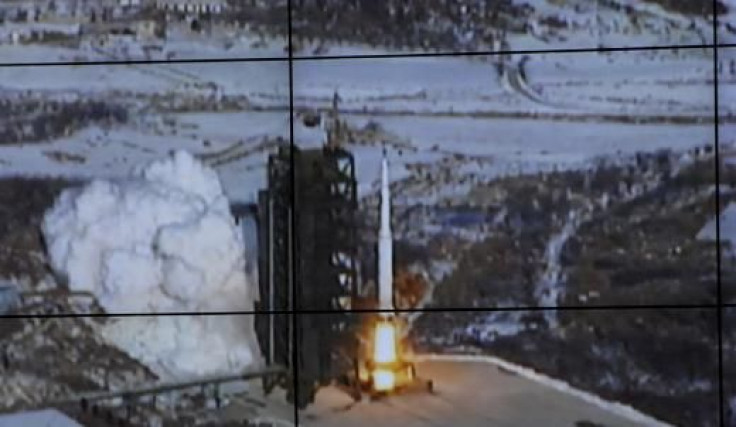North Korean Missile Launch Success: China, Japan and the UN React

North Korea announced Wednesday the successful launch of a long-range rocket and satellite despite previously suspected technically difficulties. The launch has stirred up international concern, especially from neighboring China and Japan.
The Korean Central News Agency, the official news channel of the Democratic People's Republic of Korea, or DPRK, confirmed the successful launch of the carrier rocket, adding the satellite is now in orbit.
The launch was the DPRK's second attempt this year and fifth attempt since 1998. Many nations are protesting the launch, claiming it is a thinly veiled ballistics missile test, in violation of U.N. Security Council resolutions.
In a report by state-run media outlet Xinhua, China has expressed vague disapproval of the launch, despite being North Korea's only ally, and released a statement claiming "regret" over the DPRK satellite launch.
A spokesperson for the Foreign Ministry, Hong Lei, addressed the recent rocket developments to reporters in a news briefing.
"The Chinese side always holds that [all sides concerned] should find an ultimate way to long-lasting peace and stability on the Korean Peninsula through dialogues and consultation," Hong said. "The DPRK is entitled to the peaceful use of outer space, but that right is currently restrained by relevant UN Security Council resolutions."
Hong also made a statement warning the Security Council against any ill-advised decisions, suggesting "prudent and moderate" responses to the launch and claiming anything else could otherwise aggravate tensions escalating in the area.
North Korea's decision to forge ahead with the satellite launch in spite of some previous technical obstacles shows timing was of significance. The launch converges with several important mid-December dates in East Asia; the first death anniversary of former North Korean leader Kim Jong Il (Dec. 17), the Japanese House of Representatives election (Dec. 16) and the South Korean presidential election (Dec. 19.)
According to Japan Today, Japanese officials' response to the launch was much more unwavering, particularly because the rocket passed over Japan's southern islands of Okinawa.
"Launch time was around 9:49 a.m. The missile that North Korea calls a satellite passed over Okinawa around 10:01. We launched no interception," a government statement read.
Though the government confirmed that Japan did not try to shoot down the North Korean rocket, the Japanese military has been on high-alert among rumored plans for the launch and have strongly condemned North Korea's decision to advance with their launch.
"It is extremely regrettable that North Korea went through with the launch despite our calls to exercise restraint; we cannot tolerate this," Osamu Fujimura, chief government spokesperson, said. "We strongly protest to North Korea."
Unsurprisingly, the global concern over the launch resorted to a call for a UN Security Council meeting. It is expected that representatives from Seoul, Tokyo and other Western allies will speak strongly against North Korea's missile testing and call for more restrictions regarding imported materials for weapons and arms. According to Japanese reports, these sanctions would match those on Iran.
However, China's seat as one of the Security Council's five permanent members ensures that North Korea has an ally within in the UN that has veto power. Within in the Security Council doors, China and Russia are typically aligned in political views and will likely vote together.
According to Reuters, British Ambassador Mark Lyall Grant was quoted today at UN headquarters, hoping for a quick reaction to the launches, despite what Chinese officials may suggest.
"In our view [the Security Council] should react, it should react quickly, and it should react strongly to this provocation."
A resolution is in the process of being drafted and put forth to the 15-member Security Council nations, but it is still unclear whether or not the language is something China can agree with.
"Exactly what the Chinese will be prepared to accept in form and substance is not yet clear," one diplomat said.
© Copyright IBTimes 2024. All rights reserved.











